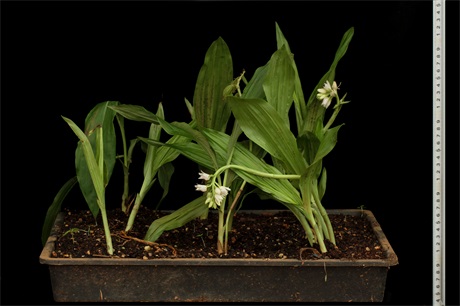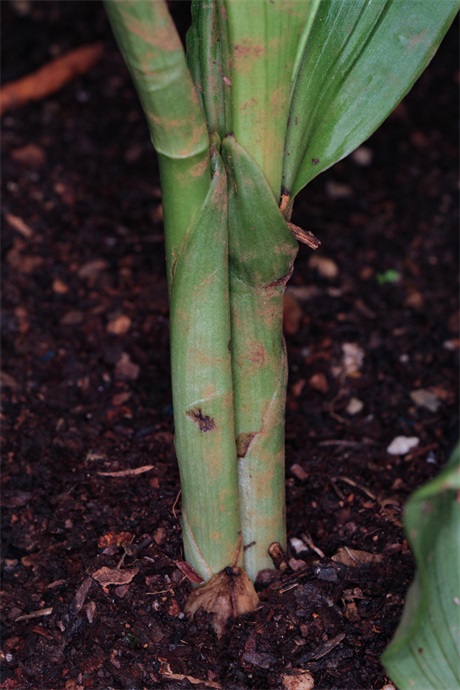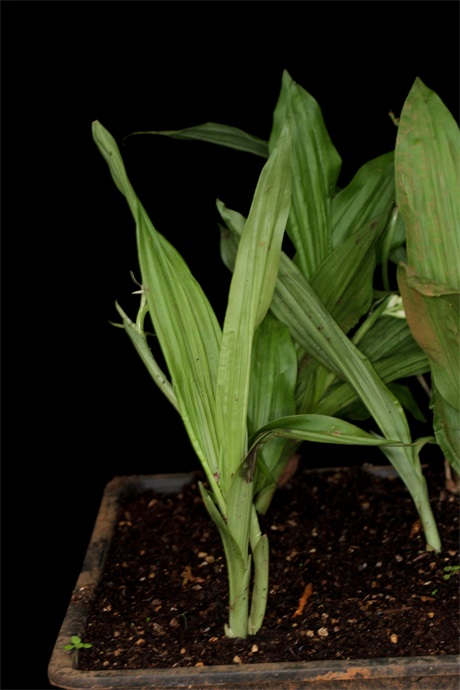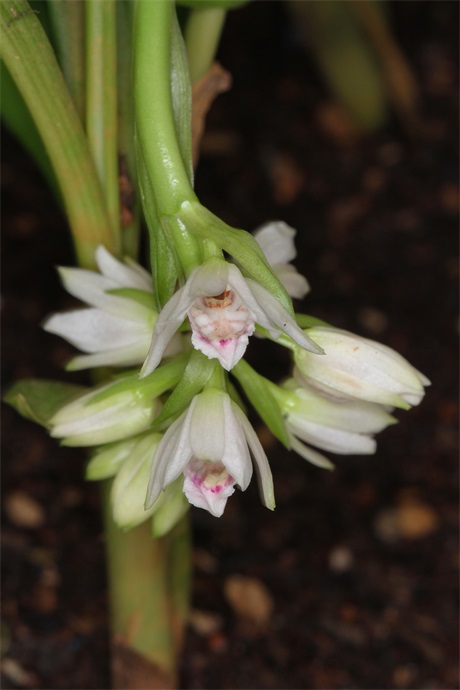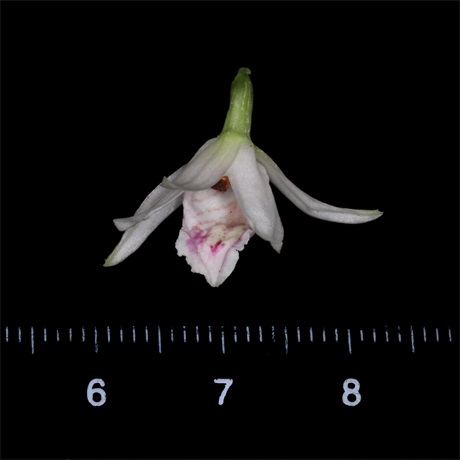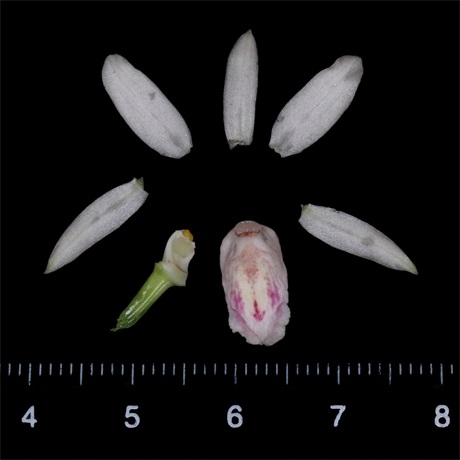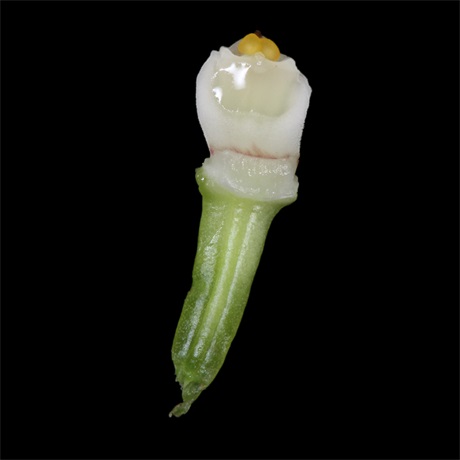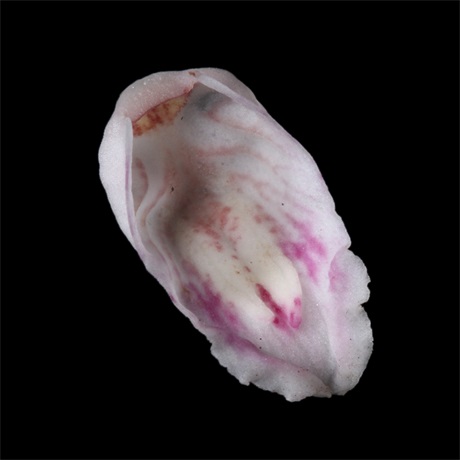地宝兰(中国高等植物图鉴)
Geodorum densiflorum (Lam.) Schltr. in Fedde Repert. Sp. Nor. Beih. 4: 259. 1919: Garay et Sweet. Orch. South. Ryukyu Isl. 131. 1974; 台湾兰科植物1: 164-165 (图). 1975; S. Y. Hu, Gen. Orch. Hong Kong 95, 97 (fig.). 1977;台湾兰科植物彩色图鉴1: 179, 457. 1977, et 2: 531. 1990; 海南植物志4: 243. 1977; 台湾植物志5: 1004. 图1599. 1978; Seidenf. in Opera Bot. 72: 61. fig. 33. 1983, et114: 333. 1992;横断山区维管植物2: 2596. 1994; Z. H. Tsi et al. in Acta Phytotax. Sin. 33 (6): 585. 1995. ——Limodorum densiflorum Lam., Encycl. 3: 516. 1789. ——Malaxis cernua Willd., Sp. Pl. 4: 93. 1805. ——Otandra cernua (Willd.) Salisb. in Trans. Hort. Soc. 1: 298. 1812. ——Geodorum purpuratum R. Br. in Aiton, Hort, Kew (ed. 2) 5: 207. 1813. ——Cistella cernua (Willd.) Bl. Bijdr. 7: 293. 1825. ——Dendrobium nutans Presl, Rel. Haenk. 1: 102. 1827, non Lindl. ——Ortmannia cernua (Willd.) Opiz in Flora 17: 292. 1834. ——Geodorum semicristatum Lindl., Fol. Orch. Geodorum 2. 1854. ——Tropidia grandis Hance in J. Linn. Soc. Bot. 13: 128. 1873. ——Geodorum nutans (Presl) Ames, Orch. 2: 164. 1908; Masamune in J. Geobot. 14 (2): t. 112. 1965;中国高等植物图鉴5: 739.图8308.1976;海南植物志4: 242. 1977.——Geodorum formosanum Rolfe in Ann. Bot. 9: 157. 1895. ——?Geodorum esquirolei Schltr. in Fedde Repert. Sp. Nov. 17: 69. 1921.
Forests, streamsides, grassy slopes; 300-2400 m. Guangdong, Guangxi, Guizhou, Hainan, SW Sichuan, Taiwan, Yunnan [Cambodia, India, Indonesia, Japan (Ryukyu Islands), Laos, Malaysia, Myanmar, New Guinea, Sri Lanka, Thailand, Vietnam; Australia]. This species is a widely distributed species with great variation. Changes in appendages on the lips are particularly pronounced, even in the same plant. Because we have not collected many specimens, it is difficult to conduct in-depth research. The view of G. Seidenf aden ( 1983 ) is adopted here as a treatment, not subdivided. |
| |
Plants 30-50 cm tall. Pseudobulbs tuberous, irregularly ellipsoid to triangular-ovoid, borne on a very short rhizome and forming dense clusters, 1.5-2 cm in diam., few noded, usually partially covered in fibrous sheaths. |
| |
Leaves 2 or 3, well developed at anthesis, lustrous, elliptic, narrowly elliptic, or oblong-lanceolate, 15-35 × (2-)3-9 cm, papery, apex acuminate or acute; petiole-like stalk enclosed in several sheaths and forming a pseudostem to ca. 25 cm. |
| |
Inflorescence (10-)30-40 cm, usually as tall as or taller than leaves; peduncle with 3-5 widely spaced sheaths; sheaths tubular, 4-6.5 cm, membranous; rachis pendulous, 2.5-6 cm, densely (2-)5-15-flowered; floral bracts linear-lanceolate, 5-9 × ca. 2.5 mm, apex acute to acuminate. Flowers not opening widely, white to pinkish, lip with a central yellow callus and crimson-purple venation and streaks; pedicel and ovary 7-8 mm. Sepals oblong, 10-12 × 3-4 mm, apex acute; lateral sepals somewhat oblique. Petals subobovate-oblong, 10-12 × 4-5 mm, apex acute or mucronate; lip broadly ovate-oblong, 10-11 × 9-10 mm, shallowly saccate at base, unlobed, lateral margins erect, apex subtruncate and slightly emarginate or retuse; disk with a central callus composed of a cluster of irregular, fleshy wartlike projections or a pair of short, fleshy longitudinal ridges. Column 3-5 mm, with a short column foot. Capsule oblong, 3.5-5 × ca. 1.5 cm. Fl. Jun-Jul. 2n = 36, 52, 54. |
| |
| ||
| ||
|
| |
